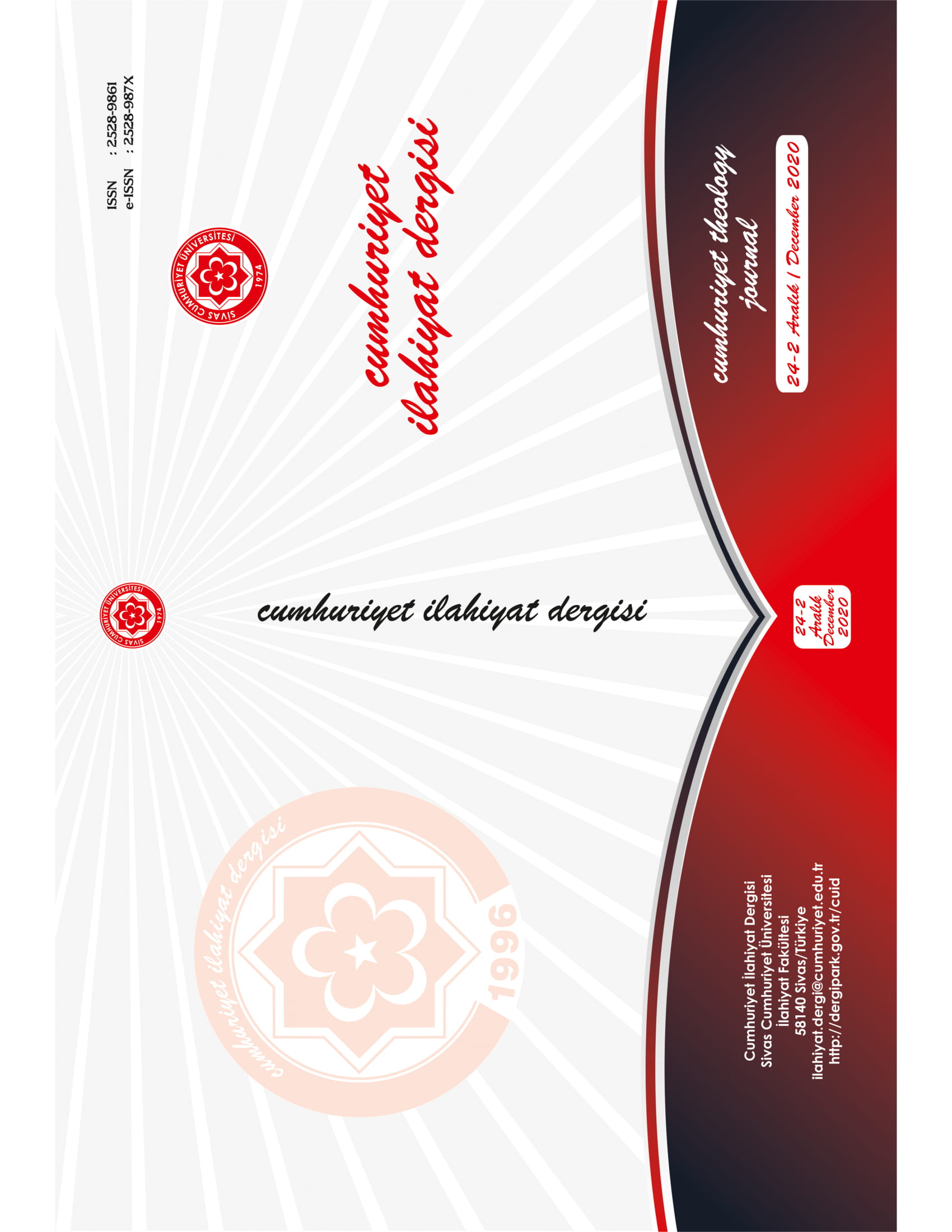Yüksek Din Öğretimi Öğrencilerinin Öğrenme İklimi Algılarının Akademik Özyeterlik ve Akademik Başarıyla İlişkisi Üzerine Bir Araştırma
A Study on the Relationship between Higher Religious Education Students' Learning ClimatePerceptions with Academic Self-Efficacy and Academic Achievement
Author(s): Yunus Emre Sayan, Mustafa TavukçuoğluSubject(s): Education, Theology and Religion, Islam studies, Higher Education
Published by: Cumhuriyet Üniversitesi İlahyat Fakültesi
Keywords: Religious Education; Higher Religious Education; Theology; Learning Climate; School Climate; Academic Self-efficacy; Academic Achievement;
Summary/Abstract: Today, which is described as the information age, it is expected from schools where knowledge is produced, education-training activities are carried out, and education is realized, to raise a self-confident student profile in accordance with the requirements of this age. The learning climate is important in this regard. Learning climate, which is one of the new components used instead of organizational climate and school climate in the climate literature, includes all kinds of factors related to learning ability; human factors are dealt with in many dimensions, especially the virtual/real spaces where learning takes place, and measurements are made with the tools developed to measure the learning climate. The data obtained is a source for improvement studies. In our study, the school learning climate was discussed in terms of school engagement, learning environment, and communication dimensions. As a type of self-efficacy, one of the basic concepts of Social Cognitive Theory, academic self-efficacy, which expresses the students' self-confidence in subjects that require academic study, can be explained as the individual's ability to use effective cognitive strategies in order to learn, effectively manage their learning environment and learning times, and effectively organize their own performance. Academic self-efficacy is considered by researchers in different dimensions, measurements are made with different scales. In our study, academic self-efficacy was handled in cognitive, social and technical dimensions. The main factors that make people strong in the flow of life are self-confidence, critical perspective, success in social relations; basic skills such as interest in any sporting, artistic or cultural field are possible with the students' gain from the school climate. In this case, we can say that having a good wind at school, creating a livable and lovable atmosphere, and sitting on an original and critical ground is only possible with a positive and sustainable school climate. The school climate, which positively nurtures academic self-efficacy, will bring the success of the human elements affected by the climate. A positive school climate and strong academic self-efficacy will become the greatest means of academic success. Measuring the learning climate, interpersonal relationships, role models, expectations, etc. in schools. It can help to understand the quality of life as well as the success and satisfaction of students. The aim of this study is to examine the relationship between the learning climate perceptions of students of higher religion and their academic self-efficacy and academic achievement. In this framework, four basic research questions have been tried to be answered: (i) What is the level of the learning climate and academic self-efficacy perceptions of higher religious education students? (ii) Is there a significant relationship between higher religious education students' learning climate and academic self-efficacy? (iii) Are the age, learning climate and academic self-efficacy beliefs of higher religious education students significant predictors of their academic achievement? (iv) What are the views of higher religious education students regarding their negative perceptions of the learning climate? The triangulation strategy was used in the study, which was patterned with mixed method and convergent parallel research design. In the quantitative section of this study, Academic Self-Efficacy Scale developed by Owen and Froman and adapted into Turkish by Ekici and the School Climate Scale for University Students, developed by Terzi was applied to 1147 students from six faculties, who study in high religious education in public universities within Turkey. In the qualitative part, interview forms were filled in by 18 students from the same faculties. Test of normality was applied to the quantitative data set obtained after the research conducted in May 2019. Independent Samples t-Test, Mann Whitney U Test, Levene test, One-way Analysis of Variance (ANOVA), Scheffe Test, Kruskal Wallis H Test, Pearson Product-Moment Correlation, Polyserial Correlation and Path Analysis were used to analyze the data. Qualitative data were analyzed by descriptive analysis. According to the results of the research, the perception of the learning climate and also of academic self-efficacy in general was negative for of the students of higher religious education. The correlation between general average of School Climate Scale and Academic Self-Efficacy Perception Scale is at medium level. According to the results of the research, the findings were discussed in the light of the literature, and after the comments, various solution suggestions were presented that are thought to provide a positive learning climate in higher religious education, strengthen the academic self-efficacy of higher religious education students and increase their academic success.
Journal: Cumhuriyet İlahiyat Dergisi
- Issue Year: 24/2020
- Issue No: 2
- Page Range: 833-855
- Page Count: 23
- Language: Turkish

